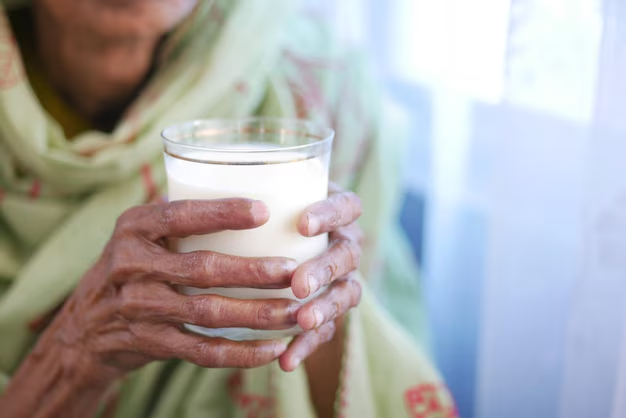Your Guide to Does Milk Cause Osteoporosis
What You Get:
Free Guide
Free, helpful information about Osteoporosis FAQ and related Does Milk Cause Osteoporosis topics.
Helpful Information
Get clear and easy-to-understand details about Does Milk Cause Osteoporosis topics and resources.
Personalized Offers
Answer a few optional questions to receive offers or information related to Osteoporosis FAQ. The survey is optional and not required to access your free guide.
Can Drinking Milk Lead to Osteoporosis? What You Need to Know
Milk has long been touted as a key source of calcium, vital for building strong bones. However, with conflicting information circulating, many wonder: Can milk actually cause osteoporosis? Let's dive into this important question and what the latest science tells us.
The Role of Milk in Bone Health
Milk is rich in calcium and vitamin D, which are crucial for maintaining bone density. As we age, our bones naturally lose density, leading to an increased risk of osteoporosis, particularly post-menopause. According to the National Osteoporosis Foundation, adequate calcium and vitamin D intake is essential in reducing the risk of osteoporosis.
Milk's Benefits:
- Calcium: Essential for bone health, helping to prevent bone loss.
- Vitamin D: Enhances calcium absorption in the body.
- Protein: Supports bone and muscle strength.
Debating the Connection: Myths and Facts
Despite milk's benefits, some studies suggest a potential negative link between high milk consumption and bone health. This paradox is primarily fueled by:
- High Lactose Content: Some research suggests that excessive lactose can lead to increased fracture risk, although evidence is not definitive.
- Hormonal Content in Milk: There is debate about whether naturally occurring hormones in milk may affect bone health.
However, the majority of health authorities, including the World Health Organization, continue to recommend milk as part of a balanced diet to support healthy bones.
Beyond Milk: Comprehensive Bone Health Strategies
While milk is beneficial, relying solely on it for bone health isn't sufficient. Here are additional strategies to foster strong bones:
- Diversify Calcium Sources: Incorporate other calcium-rich foods like leafy greens, fortified cereals, and almonds.
- Exercise Regularly: Weight-bearing exercises, such as walking and strength training, are key to building and maintaining bone density.
- Limit Bone-Damaging Substances: Reduce intake of caffeine and alcohol, and avoid smoking.
Financial and Educational Resources for Bone Health
If you're managing osteoporosis or concerned about your bone health, accessing financial and educational resources can greatly assist in managing costs associated with treatment and lifestyle modifications.
- Medicare and Medicaid: Ensure you understand what coverage is available for osteoporosis screening and treatments.
- Educational Grants: Look for grants and scholarships focused on health sciences or nutrition to deepen your understanding of bone health.
- Health Savings Accounts (HSAs): Use these to offset out-of-pocket medical expenses related to osteoporosis treatments or preventive care.
🏦 Financial Assistance Programs and Resources
- 💸 Medicare & Medicaid: Cover screenings and treatments for osteoporosis.
- 📘 Educational Grants: Support for those studying nutrition or health sciences.
- 💳 Health Savings Accounts: Tax-advantaged funds for medical costs related to osteoporosis.
- 🏋️ Community Fitness Programs: Affordable classes to build bone strength.
- 🏠 Local Health Departments: Offer community workshops and resources on maintaining bone health.
Embracing a comprehensive approach to bone health, balanced with the right resources, can empower you to maintain strong bones and overall well-being.
What You Get:
Free Osteoporosis FAQ Guide
Free, helpful information about Does Milk Cause Osteoporosis and related resources.

Helpful Information
Get clear, easy-to-understand details about Does Milk Cause Osteoporosis topics.

Optional Personalized Offers
Answer a few optional questions to see offers or information related to Osteoporosis FAQ. Participation is not required to get your free guide.


Discover More
- a Nurse Is Caring For a Client Who Has Osteoporosis.
- a Percutaneous Is Performed To Treat Osteoporosis Related Compression Fractures
- Can Alcohol Cause Osteoporosis
- Can I Do Pilates If I Have Osteoporosis
- Can I Reverse Osteoporosis
- Can Men Get Osteoporosis
- Can Osteoporosis Affect Teeth
- Can Osteoporosis Be Cured
- Can Osteoporosis Be Painful
- Can Osteoporosis Be Reversed
